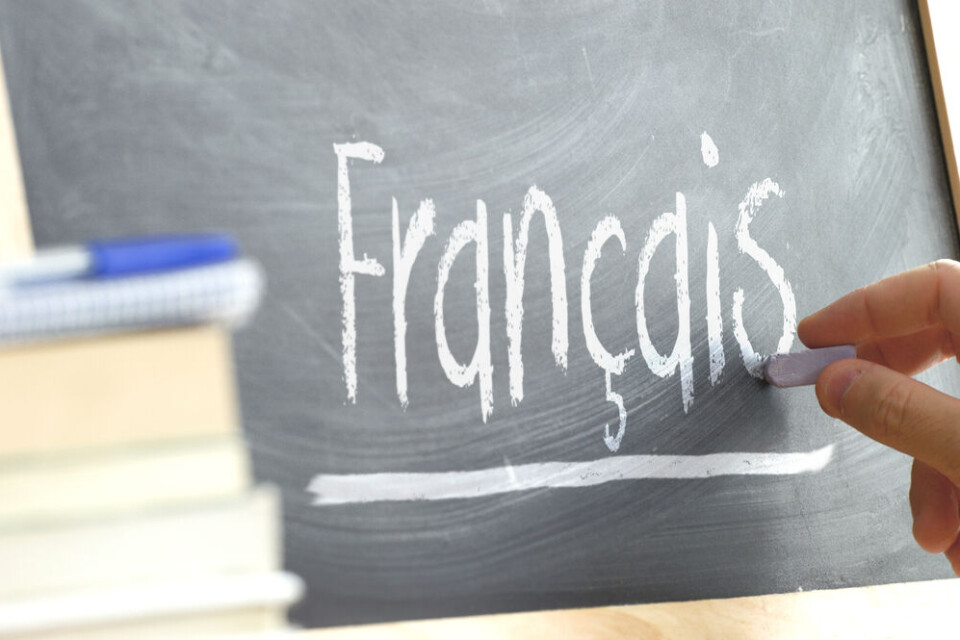-
Can you guess the meaning of grincheux?
Read about a real-life example illustrating when to use this fun French adjective
-
When and why do we say c’est la goutte d'eau qui fait déborder le vase?
An expression to indicate that something has tipped you over the edge
-
More French podcasts to test your language skills
Podcasts are one of the best free tools for consistently developing your listening comprehension
12 facts about the French language
From the longest word to its importance in European law, see how many you know

The French language is one of the most spoken in the world and becoming increasingly popular to learn. We look at some unique and interesting facts about it.
French is the fifth most spoken language in the world, with more than 320 million speakers worldwide, according to the Organisation of International Francophonie. More than half (61.8%) of these French speakers live in Africa (North Africa, Near East and Sub-Saharan Africa).
Alongside English, French is the only language that is spoken on all permanently inhabited continents – for example much of west Africa is French speaking, Canada and Louisiana in North America, French Guiana in South America, Chandannagar and Puducherry in Asia, and Vanuatu in Oceania.
French is the second most learned language in the world, with more than 50 million people learning it as a foreign language, states the Observatoire de la langue française.
Linguists estimate that there are around 75 regional languages in France itself, such as Occitan, Breton, Basque, Corsican and Alsatian. Some are taught in schools, with the Centre International d’Antibes stating that “every year, 400,000 pupils learn a regional language in France’s state-run and private schools.”
The most important identity data on the British passport are translated into French, for example: Date of birth / Date de naissance or Surname / Nom. This is due to recommendations from the UN’s International Civil Aviation Organization (ICAO). “The ICAO requests that where the official language of the issuing state is English, French or Spanish, the issuing state should also print passport captions in one of the other two languages.” The ICAO brought in their translation request for British passports in 1968. American passports have included French since 1976.
For those looking to learn other languages, especially Romance languages such as Spanish, Italian, Portuguese and Romanian, French is an extremely helpful base. Romance languages were all derived from Latin before evolving into distinct languages and thus they have very similar vocabulary and grammar. This means Romance language speakers understand each other and are able to learn each other’s language much more easily.
About a third of basic English words come from French, according to language learning software Babbel. These include words such as pedigree, surf, view, strive, challenge, pride, staunch and war. English also borrows words from French and adapts them into its everyday lexicon such as déjà vu, cul-de-sac and femme fatale.
French is the official language of the Court of Justice of the European Union, making it the language of European law. In practice, a case is introduced in its original language, translated into French and the institution thus deliberates in the French language too.
Judges render their verdict in French before it is transcribed into the other 23 languages of the Union. French is also both a working language and an official language of the United Nations, the European Union, Unesco, Nato, the International Olympic Committee and the International Red Cross.
For English-speakers, counting in French can prove tricky because the language is based on the vigesimal system which uses multiples of 20. This means between the numbers 70 and 99, they base the latter half of their numbers on a base of 20, rather than 10 as in English. This explains why 70 is soixante-dix (seventy-ten) and 99 is said as quatre-vingt-dix-neuf (four twenties, nineteen)
The literary integrity of the French language has been preserved by the Académie française since its creation in 1634 by Cardinal Richelieu. The Academy consists of 40 members who oversee the language, adding new words and contemplating changes to modernise the language. An example of their work would be in 2016, when they also voted to change the spellings of some words like “oignon” to “ognon”, as they believed removing some silent letters would make them easier to learn.
The longest word in the French dictionary, and recognised by the Académie française, is anticonstitutionnellement with a total of 25 letters. Meanwhile, the longest town name is Saint-Remy-en-Bouzemont-Saint-Genest-et-Isson in the Marne department, north eastern France with 38 letters. In contrast, the shortest town name is Y, located in the Somme in northern France.
The typists’ phrase - the sentence which has every letter in the particular language alphabet - in French it is “Allez porter ce vieux whisky au juge blond qui fume un havane” (‘Take this old whisky to the blond judge who is smoking a cigar). In English the well known typists’ warm-up is “The quick brown fox jumped over the lazy dog.”
Read also
10 French words and phrases that are untranslatable in English
10 of the most difficult English words for French people to pronounce
Senate votes to ban ‘inclusive language’ from official French texts
























